
50 Verbs of Analysis for English Academic Essays
Note: this list is for advanced English learners (CEFR level B2 or above). All definitions are from the Cambridge Dictionary online .
Definition: to have an influence on someone or something, or to cause a change in someone or something.
Example: Experts agree that coffee affects the body in ways we have not yet studied.
Definition: to increase the size or effect of something.
Example: It has been shown that this drug amplifies the side effects that were experienced by patients in previous trials.
Definition: to say that something is certainly true .
Example: Smith asserts that his findings are valid, despite criticism by colleagues.
Characterizes
Definition: Something that characterizes another thing is typical of it.
Example: His early paintings are characterized by a distinctive pattern of blue and yellow.
Definition: to say that something is true or is a fact , although you cannot prove it and other people might not believe it.
Example: Smith claims that the study is the first of its kind, and very different from the 2015 study he conducted.
Definition: to make something clear or easier to understand by giving more details or a simpler explanation .
Example: The professor clarified her statement with a later, more detailed, statement.
Definition: t o collect information from different places and arrange it in a book , report , or list .
Example: After compiling the data, the scientists authored a ten-page paper on their study and its findings.
Definition: to judge or decide something after thinking carefully about it.
Example: Doctor Jensen concluded that the drug wasn’t working, so he switched his patient to a new medicine.
Definition: to prove that a belief or an opinion that was previously not completely certain is true .
Example: This new data confirms the hypothesis many researchers had.
Definition: to join or be joined with something else .
Example: By including the criticisms of two researchers, Smith connects two seemingly different theories and illustrates a trend with writers of the Romanticism period.
Differentiates
Definition: to show or find the difference between things that are compared .
Example: Smith differentiates between the two theories in paragraph 4 of the second part of the study.
Definition: to reduce or be reduced in s i ze or importance .
Example: The new findings do not diminish the findings of previous research; rather, it builds on it to present a more complicated theory about the effects of global warming.
Definition: to cause people to stop respecting someone or believing in an idea or person .
Example: The details about the improper research done by the institution discredits the institution’s newest research.
Definition: to show.
Example: Smith’s findings display the effects of global warming that have not yet been considered by other scientists.
Definition: to prove that something is not true .
Example: Scientists hope that this new research will disprove the myth that vaccines are harmful to children.
Distinguishes
Definition: to notice or understand the difference between two things, or to make one person or thing seem different from another.
Example: Our study seems similar to another one by Duke University: how can we distinguish ourselves and our research from this study?
Definition: to add more information to or explain something that you have said.
Example: In this new paper, Smith elaborates on theories she discussed in her 2012 book.
Definition: to represent a quality or an idea exactly .
Example: Shakespeare embodies English theater, but few can understand the antiquated (old) form of English that is used in the plays.
Definition: to copy something achieved by someone else and try to do it as well as they have.
Example: Although the study emulates some of the scientific methods used in previous research, it also offers some inventive new research methods.
Definition: to improve the quality , amount , or strength of something.
Example: The pharmaceutical company is looking for ways to enhance the effectiveness of its current drug for depression.
Definition: to make something necessary , or to involve something.
Example: The scientist’s study entails several different stages, which are detailed in the report.
Definition: to consider one thing to be the same as or equal to another thing.
Example: Findings from both studies equate; therefore, we can conclude that they are both accurate.
Establishes
Definition: to discover or get proof of something.
Example: The award establishes the main causes of global warming.
Definition: to make someone remember something or feel an emotion .
Example: The artist’s painting evokes the work of some of the painters from the early 1800s.
Definition: to show something.
Example: Some of the research study participants exhibit similar symptoms while taking the medicine.
Facilitates
Definition: to make something possible or easier .
Example: The equipment that facilitates the study is expensive and of high-quality.
Definition: the main or central point of something, especially of attention or interest .
Example: The author focuses on World War II, which is an era she hasn’t written about before.
Foreshadows
Definition: to act as a warning or sign of a future event .
Example: The sick bird at the beginning of the novel foreshadows the illness the main character develops later in the book.
Definition: to develop all the details of a plan for doing something.
Example: Two teams of scientists formulated the research methods for the study.
Definition: to cause something to exist .
Example: The study’s findings have generated many questions about this new species of frog in South America.
Definition: to attract attention to or emphasize something important .
Example: The author, Dr. Smith, highlights the need for further studies on the possible causes of cancer among farm workers.
Definition: to recognize a problem , need, fact , etc. and to show that it exists .
Example: Through this study, scientists were able to identify three of the main factors causing global warming.
Illustrates
Definition: to show the meaning or truth of something more clearly , especially by giving examples .
Example: Dr. Robin’s study illustrates the need for more research on the effects of this experimental drug.
Definition: to communicate an idea or feeling without saying it directly .
Example: The study implies that there are many outside factors (other than diet and exercise) which determine a person’s tendency to gain weight.
Incorporates
Definition: to include something as part of something larger .
Example: Dr. Smith incorporates research findings from 15 other studies in her well-researched paper.
Definition: to show, point , or make clear in another way.
Example: Overall, the study indicates that there is no real danger (other than a lack of sleep) to drinking three cups of coffee per day.
Definition: to form an opinion or guess that something is true because of the information that you have.
Example: From this study about a new medicine, we can infer that it will work similarly to other drugs that are currently being sold.
Definition: to tell someone about parti c ular facts .
Example: Dr. Smith informs the reader that there are some issues with this study: the oddly rainy weather in 2017 made it difficult for them to record the movements of the birds they were studying.
Definition: to suggest , without being direct , that something unpleasant is true .
Example: In addition to the reported conclusions, the study insinuates that there are many hidden dangers to driving while texting.
Definition: to combine two or more things in order to become more effective .
Example: The study about the popularity of social media integrates Facebook and Instagram hashtag use.
Definition: to not have or not have enough of something that is needed or wanted .
Example: What the study lacks, I believe, is a clear outline of the future research that is needed.
Legitimizes
Definition: to make something legal or acceptable .
Example: Although the study legitimizes the existence of global warming, some will continue to think it is a hoax.
Definition: to make a problem bigger or more important .
Example: In conclusion, the scientists determined that the new pharmaceutical actually magnifies some of the symptoms of anxiety.
Definition: something that a copy can be based on because it is an extremely good example of its type .
Example: The study models a similar one from 1973, which needed to be redone with modern equipment.
Definition: to cause something to have no effect .
Example: This negates previous findings that say that sulphur in wine gives people headaches.
Definition: to not give enough c a re or attention to people or things that are your responsibility .
Example: The study neglects to mention another study in 2015 that had very different findings.
Definition: to make something difficult to discover and understand .
Example: The problems with the equipment obscures the study.
Definition: a description of the main facts about something.
Example: Before describing the research methods, the researchers outline the need for a study on the effects of anti-anxiety medication on children.
Definition: to fail to notice or consider something or someone.
Example: I personally feel that the study overlooks something very important: the participants might have answered some of the questions incorrectly.
Definition: to happen at the same time as something else , or be similar or equal to something else .
Example: Although the study parallels the procedures of a 2010 study, it has very different findings.
Converse International School of Languages offers an English for Academic Purposes course for students interested in improving their academic English skills. Students may take this course, which is offered in the afternoon for 12 weeks, at both CISL San Diego and CISL San Francisco . EAP course graduates can go on to CISL’s Aca demic Year Abroad program, where students attend one semester at a California Community College. Through CISL’s University Pathway program, EAP graduates may also attend college or university at one of CISL’s Pathway Partners. See the list of 25+ partners on the CISL website . Contact CISL for more information.
How to Use Verbs Effectively in Your Research Paper
- Writing Research Papers
- Writing Essays
- English Grammar
- M.Ed., Education Administration, University of Georgia
- B.A., History, Armstrong State University
When you conduct a research project, one part of your job is to assert your own original thesis with an effective argument . There are a few ways to enhance your research paper so it sounds more impressive. One method to sound convincing as an authority is to elevate your vocabulary by using strong verbs.
Remember, verbs are action words . The verbs you select for your writing should represent a specific action . This means you should avoid generic verbs to keep your writing interesting and sharp. Your goal is to keep teacher or audience interested.
Try to avoid these less exciting verbs:
How to Choose Your Verbs
No matter what your grade level, you must do your best to come across as an authority on your topic. Think about the noticeable difference in these statements:
- I saw more mold on one piece of bread.
- I observed a distinct difference between the two pieces of bread. Most importantly, one piece of bread displayed a greater density of mold.
The second statement sounds more mature, because we replaced "saw" with "observed" and "had" with "displayed." In fact, the verb "observe " is more accurate. When carrying out a scientific experiment, after all, you use more than mere eyesight to scrutinize your results. You may smell, hear, or feel some results, and those are all part of observing.
Now consider these statements when writing a history essay:
- Historian Robert Dulvany says there were three main causes for the war.
- Historian Robert Dulvany asserted that three events prompted the war.
The second phrase sounds more authoritative and direct. And it's the verbs that make all the difference.
Also, make sure to use active rather than passive structure with your verbs. Active verbs make your writing clearer and more engaging. Review these statements:
- T he war on terror was launched by the United States.
- The United States launched the war on terror.
The subject-verb construction is a more active and powerful statement.
How to Sound Like an Authority
Each discipline (like history, science or literature) has a distinct tone with certain verbs that appear frequently. As you read over your sources, observe the tone and language.
While reviewing the first draft of your research paper, conduct an inventory of your verbs. Are they tired and weak or strong and effective? This list of verbs provides suggestions to make your research paper sound more authoritative.
affirm | ascertain | assert |
cite | claim | clarify |
communicate | concur | contribute |
convey | debate | defend |
define | detail | determine |
develop | differ | discover |
discuss | dispute | dissect |
document | elaborate | emphasize |
employ | engage | enhance |
establish | estimate | evaluate |
examine | explore | express |
find | focus | highlight |
hold | hypothesize | identify |
illuminate | illustrate | imply |
incorporate | infer | inquire |
invest | investigate | involve |
judge | justify | limn |
observe | ponder | predict |
proclaim | proffer | promote |
provide | question | realize |
recap | reconcile | refer |
reflect | regard | relate |
relay | remark | report |
resolve | respond | reveal |
review | sanction | seek |
show | simplify | speculate |
submit | support | surmise |
survey | tangle | test |
theorize | total | transpose |
underestimate | underline | underscore |
understand | undertake | undervalue |
usurp | validate | value |
verify | vex | wander |
- Questions for Each Level of Bloom's Taxonomy
- Powerful Verbs for Your Writing
- Conciseness for Better Composition
- College Essay Style Tips
- What Does Critical Reading Really Mean?
- What Is Guerrilla Warfare? Definition, Tactics, and Examples
- Vocal Fry (Creaky Voice)
- Third-Person Point of View
- Word Choice in English Composition and Literature
- Medical School Personal Statement Examples and Analysis
- Difference Between a Weak and Strong Verb
- How To Offer Advice in Spanish
- What It Means to "Stack Words"
- What Are Reporting Verbs in English Grammar?
- What is Second-Person Point of View in Literature?
- What Is a Literature Review?
We’ve updated the look and feel of ProWritingAid. Learn more about our new chapter.
- Grammar Checker
- Paraphrasing Tool
- Critique Report
- Writing Reports
- Learn Blog Grammar Guide Community Events FAQ
- Grammar Guide
Power Verbs for Essays (With Examples)
By The ProWritingAid Team
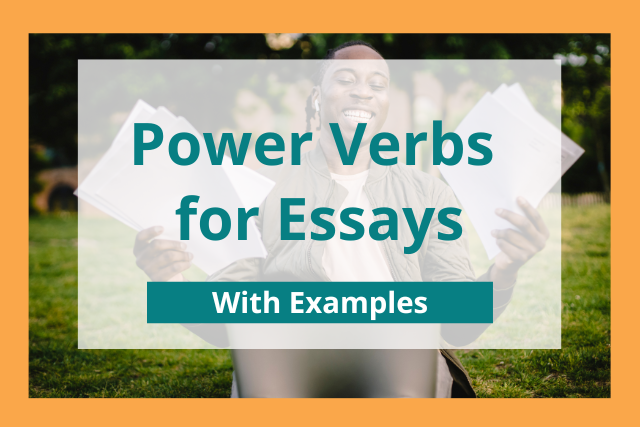
Adding power verbs to your academic paper will improve your reader’s experience and bring more impact to the arguments you make.
While the arguments themselves are the most important elements of any successful academic paper, the structure of those arguments and the language that is used influence how the paper is received.
Academic papers have strict formal rules, but as long as these are followed, there is still plenty of scope to make the key points of the paper stand out through effective use of language and more specifically, the effective use of power verbs.
Power verbs are verbs that indicate action and have a more positive and confident tone. Using them brings strength and confidence to the arguments you are making, while also bringing variation to your sentences and making your writing more interesting to the reader.
The best academic papers will use such verbs to support their arguments or concepts, so it is important that your paper contains at least three power verbs.
ProWritingAid will check your writing for power verbs and will notify you if you have less than three throughout your whole academic paper.
Power Verbs Boost Ideas
Examples of power verbs.
Academic papers of all disciplines are often filled with overlong and complicated sentences that are attempting to convey specific ideas and concepts. Active and powerful verbs are useful both to the reader and the author of the paper.
For the reader who is trying to tackle these ideas and concepts, the power verbs provide clarity and purpose. Compare the following sentences:
- This paper will say that there were two reasons for the start of the civil war.
- This paper asserts that there were two reasons for the start of the civil war.
Clearly the second sentence is more confident, direct, and authoritative because it has replaced the dull ‘says’ with ‘asserts.’ For the writer, the power verb expresses confidence in the idea being presented.
The following are examples of power verbs that are useful in academic writing, both for supporting an argument and for allowing you to vary the language you use.
Power Verbs for Analysis: appraise, define, diagnose, examine, explore, identify, interpret, investigate, observe.
Power Verbs to Introduce a Topic: investigate, outline, survey, question, feature.
Power Verbs to Agree with Existing Studies: indicate, suggest, confirm, corroborate, underline, identify, impart, maintain, substantiate, support, validate, acknowledge, affirm, assert.
Power Verbs to Disagree with Existing Studies: reject, disprove, debunk, question, challenge, invalidate, refute, deny, dismiss, disregard, object to, oppose.
Power Verbs to Infer: extract, approximate, surmise, deduce.
Power Verbs for Cause and Effect : impacts, compels, generates, incites, influences, initiates, prompts, stimulates, provokes, launches, introduces, advances.
Legal Power Verbs: sanctions, consents, endorses, disallows, outlaws, prohibits, precludes, protects, bans, licenses, authorizes.
Power Verbs that Say: convey, comment, state, establish, elaborate, identify, propose.
Power Verbs that Show: reveal, display, highlight, depict, portray, illustrate.

Be confident about grammar
Check every email, essay, or story for grammar mistakes. Fix them before you press send.
The ProWritingAid Team
The most successful people in the world have coaches. Whatever your level of writing, ProWritingAid will help you achieve new heights. Exceptional writing depends on much more than just correct grammar. You need an editing tool that also highlights style issues and compares your writing to the best writers in your genre. ProWritingAid helps you find the best way to express your ideas.
Get started with ProWritingAid
Drop us a line or let's stay in touch via :
- Generating Ideas
- Drafting and Revision
- Sources and Evidence
- Style and Grammar
- Specific to Creative Arts
- Specific to Humanities
- Specific to Sciences
- Specific to Social Sciences
- CVs, Résumés and Cover Letters
- Graduate School Applications
- Other Resources
- Hiatt Career Center
- University Writing Center
- Classroom Materials
- Course and Assignment Design
- UWP Instructor Resources
- Writing Intensive Requirement
- Criteria and Learning Goals
- Course Application for Instructors
- What to Know about UWS
- Teaching Resources for WI
- FAQ for Instructors
- FAQ for Students
- Journals on Writing Research and Pedagogy
- University Writing Program
- Degree Programs
- Graduate Programs
- Brandeis Online
- Summer Programs
- Undergraduate Admissions
- Graduate Admissions
- Financial Aid
- Summer School
- Centers and Institutes
- Funding Resources
- Housing/Community Living
- Clubs and Organizations
- Community Service
- Brandeis Arts Engagement
- Rose Art Museum
- Our Jewish Roots
- Mission and Diversity Statements
- Administration
- Faculty & Staff
- Alumni & Friends
- Parents & Families
- Campus Calendar
- Directories
- New Students
- Shuttle Schedules
- Support at Brandeis
Writing Resources
Active verbs for discussing ideas.
This handout is available for download in PDF format .
Active verbs are important components of any academic writing! Just as in other forms of writing, they work as engines, driving the action of your sentences in many potentially vivid, clear, and colorful ways.
Instead of opting for bland, unspecific expressions ("says," "writes about," "believes," "states") consider using more vivid or nuanced verbs such as "argues," "insists," "explains," "emphasizes," "challenges," "agrees," etc. The list below offers dozens of such verbs that will help you communicate your ideas and the ideas of others more clearly, expressively, and powerfully.
Graduate students in science and engineering at Rice University generated the following list of verbs. Read through them for choices that could help make your own writing more precise and persuasive.
| ||||||||||||||||||||||||||||||||||||||||||||||||||||||||||||||||||||||||||||||||||||||||||||||||||||||||||||||||||||||||||||||||||||||||||||||||||||||||||||||||||||||||||||||||||||||||||

- Walden University
- Faculty Portal
Grammar: Verb Tenses
Most common verb tenses in academic writing.
According to corpus research, in academic writing, the three tenses used the most often are the simple present , the simple past , and the present perfect (Biber et al., 1999; Caplan, 2012). The next most common tense for capstone writers is the future ; the doctoral study/dissertation proposal at Walden is written in this tense for a study that will be conducted in the future.
Biber, D., Johansson, S., Leech, G., Conrad, S., & Finegan, E. (1999). Longman grammar of written and spoken English . Pearson. https://doi.org/10.1162/089120101300346831
Caplan, N. A. (2012). Grammar choices for graduate and professional writers . University of Michigan Press.
Simple present: Use the simple present to describe a general truth or a habitual action. This tense indicates that the statement is generally true in the past, present, and future.
- Example: The hospital admits patients whether or not they have proof of insurance.
Simple past : Use the simple past tense to describe a completed action that took place at a specific point in the past (e.g., last year, 1 hour ago, last Sunday). In the example below, the specific point of time in the past is 1998.
- Example: Zimbardo (1998) researched many aspects of social psychology.
Present perfect: Use the present perfect to indicate an action that occurred at a nonspecific time in the past. This action has relevance in the present. The present perfect is also sometimes used to introduce background information in a paragraph. After the first sentence, the tense shifts to the simple past.
- Example: Numerous researchers have used this method.
- Example: Many researchers have studied how small business owners can be successful beyond the initial few years in business. They found common themes among the small business owners.
Future: Use the future to describe an action that will take place at a particular point in the future (at Walden, this is used especially when writing a proposal for a doctoral capstone study).
- Example: I will conduct semistructured interviews.
Keep in mind that verb tenses should be adjusted after the proposal after the research has been completed. See this blog post about Revising the Proposal for the Final Capstone Document for more information.
APA Style Guidelines on Verb Tense
APA calls for consistency and accuracy in verb tense usage (see APA 7, Section 4.12 and Table 4.1). In other words, avoid unnecessary shifts in verb tense within a paragraph or in adjacent paragraphs to help ensure smooth expression.
- Use the past tense (e.g., researchers presented ) or the present perfect (e.g., researchers have presented ) for the literature review and the description of the procedure if discussing past events.
- Use the past tense to describe the results (e.g., test scores improved significantly).
- Use the present tense to discuss implications of the results and present conclusions (e.g., the results of the study show …).
When explaining what an author or researcher wrote or did, use the past tense.
- Patterson (2012) presented, found, stated, discovered…
However, there can be a shift to the present tense if the research findings still hold true:
- King (2010) found that revising a document three times improves the final grade.
- Smith (2016) discovered that the treatment is effective.
Verb Tense Guidelines When Referring to the Document Itself
To preview what is coming in the document or to explain what is happening at that moment in the document, use the present or future tense:
- In this study, I will describe …
- In this study, I describe …
- In the next chapter, I will discuss …
- In the next chapter, I discuss …
To refer back to information already covered, such as summaries of discussions that have already taken place or conclusions to chapters/sections, use the past tense:
- Chapter 1 contained my original discussion of the research questions.
- In summary, in this section, I presented information on…
Simple Past Versus the Present Perfect
Rules for the use of the present perfect differ slightly in British and American English. Researchers have also found that among American English writers, sometimes individual preferences dictate whether the simple past or the present perfect is used. In other words, one American English writer may choose the simple past in a place where another American English writer may choose the present perfect.
Keep in mind, however, that the simple past is used for a completed action. It often is used with signal words or phrases such as "yesterday," "last week," "1 year ago," or "in 2015" to indicate the specific time in the past when the action took place.
- I went to China in 2010 .
- He completed the employee performance reviews last month .
The present perfect focuses more on an action that occurred without focusing on the specific time it happened. Note that the specific time is not given, just that the action has occurred.
- I have travelled to China.
The present perfect focuses more on the result of the action.
- He has completed the employee performance reviews.
The present perfect is often used with signal words such as "since," "already," "just," "until now," "(not) yet," "so far," "ever," "lately," or "recently."
- I have already travelled to China.
- He has recently completed the employee performance reviews.
- Researchers have used this method since it was developed.
Summary of English Verb Tenses
The 12 main tenses:
- Simple present : She writes every day.
- Present progressive: She is writing right now.
- Simple past : She wrote last night.
- Past progressive: She was writing when he called.
- Simple future : She will write tomorrow.
- Future progressive: She will be writing when you arrive.
- Present perfect : She has written Chapter 1.
- Present perfect progressive: She has been writing for 2 hours.
- Past perfect: She had written Chapter 3 before she started Chapter 4.
- Past perfect progressive: She had been writing for 2 hours before her friends arrived.
- Future perfect: She will have written Chapter 4 before she writes Chapter 5.
- Future perfect progressive: She will have been writing for 2 hours by the time her friends come over.
Conditionals:
Zero conditional (general truths/general habits).
- Example: If I have time, I write every day.
First conditional (possible or likely things in the future).
- Example: If I have time, I will write every day.
Second conditional (impossible things in the present/unlikely in the future).
- Example : If I had time, I would write every day.
Third conditional (things that did not happen in the past and their imaginary results)
- Example : If I had had time, I would have written every day.
Subjunctive : This form is sometimes used in that -clauses that are the object of certain verbs or follow certain adjectives. The form of the subjective is the simple form of the verb. It is the same for all persons and number.
- Example : I recommend that he study every day.
- Example: It is important that everyone set a writing schedule.
Verbs Video Playlist
Note that these videos were created while APA 6 was the style guide edition in use. There may be some examples of writing that have not been updated to APA 7 guidelines.
- Grammar for Academic Writers: Common Verb Tenses in Academic Writing (video transcript)
- Grammar for Academic Writers: Verb Tense Consistency (video transcript)
- Grammar for Academic Writers: Advanced Subject–Verb Agreement (video transcript)
- Mastering the Mechanics: Helping Verbs (video transcript)
- Mastering the Mechanics: Past Tense (video transcript)
- Mastering the Mechanics: Present Tense (video transcript)
- Mastering the Mechanics: Future Tense (video transcript)
Related Resources
Knowledge Check: Verb Tenses
Didn't find what you need? Email us at [email protected] .
- Previous Page: Comparisons
- Next Page: Verb Forms: "-ing," Infinitives, and Past Participles
- Office of Student Disability Services
Walden Resources
Departments.
- Academic Residencies
- Academic Skills
- Career Planning and Development
- Customer Care Team
- Field Experience
- Military Services
- Student Success Advising
- Writing Skills
Centers and Offices
- Center for Social Change
- Office of Academic Support and Instructional Services
- Office of Degree Acceleration
- Office of Research and Doctoral Services
- Office of Student Affairs
Student Resources
- Doctoral Writing Assessment
- Form & Style Review
- Quick Answers
- ScholarWorks
- SKIL Courses and Workshops
- Walden Bookstore
- Walden Catalog & Student Handbook
- Student Safety/Title IX
- Legal & Consumer Information
- Website Terms and Conditions
- Cookie Policy
- Accessibility
- Accreditation
- State Authorization
- Net Price Calculator
- Contact Walden
Walden University is a member of Adtalem Global Education, Inc. www.adtalem.com Walden University is certified to operate by SCHEV © 2024 Walden University LLC. All rights reserved.
- Affiliate Program

- UNITED STATES
- 台灣 (TAIWAN)
- TÜRKIYE (TURKEY)
- Academic Editing Services
- - Research Paper
- - Journal Manuscript
- - Dissertation
- - College & University Assignments
- Admissions Editing Services
- - Application Essay
- - Personal Statement
- - Recommendation Letter
- - Cover Letter
- - CV/Resume
- Business Editing Services
- - Business Documents
- - Report & Brochure
- - Website & Blog
- Writer Editing Services
- - Script & Screenplay
- Our Editors
- Client Reviews
- Editing & Proofreading Prices
- Wordvice Points
- Partner Discount
- Plagiarism Checker
- APA Citation Generator
- MLA Citation Generator
- Chicago Citation Generator
- Vancouver Citation Generator
- - APA Style
- - MLA Style
- - Chicago Style
- - Vancouver Style
- Writing & Editing Guide
- Academic Resources
- Admissions Resources
100+ Research Vocabulary Words & Phrases
The academic community can be conservative when it comes to enforcing academic writing style , but your writing shouldn’t be so boring that people lose interest midway through the first paragraph! Given that competition is at an all-time high for academics looking to publish their papers, we know you must be anxious about what you can do to improve your publishing odds.
To be sure, your research must be sound, your paper must be structured logically, and the different manuscript sections must contain the appropriate information. But your research must also be clearly explained. Clarity obviously depends on the correct use of English, and there are many common mistakes that you should watch out for, for example when it comes to articles , prepositions , word choice , and even punctuation . But even if you are on top of your grammar and sentence structure, you can still make your writing more compelling (or more boring) by using powerful verbs and phrases (vs the same weaker ones over and over). So, how do you go about achieving the latter?
Below are a few ways to breathe life into your writing.
1. Analyze Vocabulary Using Word Clouds
Have you heard of “Wordles”? A Wordle is a visual representation of words, with the size of each word being proportional to the number of times it appears in the text it is based on. The original company website seems to have gone out of business, but there are a number of free word cloud generation sites that allow you to copy and paste your draft manuscript into a text box to quickly discover how repetitive your writing is and which verbs you might want to replace to improve your manuscript.
Seeing a visual word cloud of your work might also help you assess the key themes and points readers will glean from your paper. If the Wordle result displays words you hadn’t intended to emphasize, then that’s a sign you should revise your paper to make sure readers will focus on the right information.
As an example, below is a Wordle of our article entitled, “ How to Choose the Best title for Your Journal Manuscript .” You can see how frequently certain terms appear in that post, based on the font size of the text. The keywords, “titles,” “journal,” “research,” and “papers,” were all the intended focus of our blog post.
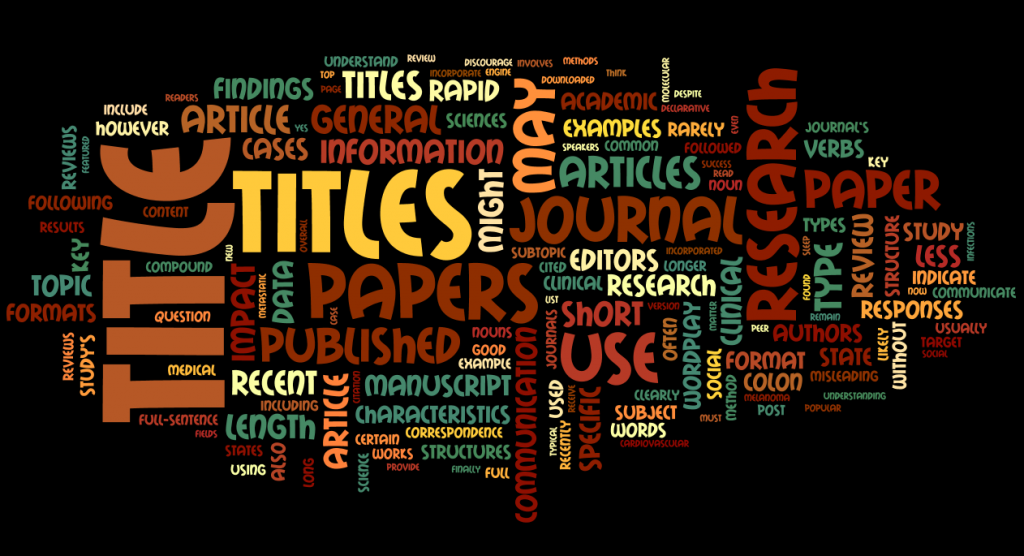
2. Study Language Patterns of Similarly Published Works
Study the language pattern found in the most downloaded and cited articles published by your target journal. Understanding the journal’s editorial preferences will help you write in a style that appeals to the publication’s readership.
Another way to analyze the language of a target journal’s papers is to use Wordle (see above). If you copy and paste the text of an article related to your research topic into the applet, you can discover the common phrases and terms the paper’s authors used.
For example, if you were writing a paper on links between smoking and cancer , you might look for a recent review on the topic, preferably published by your target journal. Copy and paste the text into Wordle and examine the key phrases to see if you’ve included similar wording in your own draft. The Wordle result might look like the following, based on the example linked above.
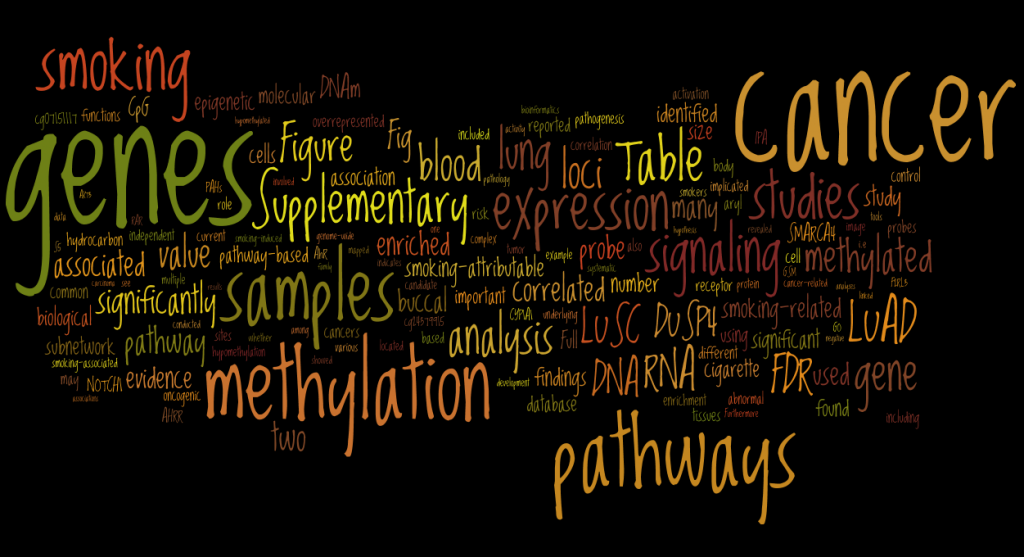
If you are not sure yet where to publish and just want some generally good examples of descriptive verbs, analytical verbs, and reporting verbs that are commonly used in academic writing, then have a look at this list of useful phrases for research papers .
3. Use More Active and Precise Verbs
Have you heard of synonyms? Of course you have. But have you looked beyond single-word replacements and rephrased entire clauses with stronger, more vivid ones? You’ll find this task is easier to do if you use the active voice more often than the passive voice . Even if you keep your original sentence structure, you can eliminate weak verbs like “be” from your draft and choose more vivid and precise action verbs. As always, however, be careful about using only a thesaurus to identify synonyms. Make sure the substitutes fit the context in which you need a more interesting or “perfect” word. Online dictionaries such as the Merriam-Webster and the Cambridge Dictionary are good sources to check entire phrases in context in case you are unsure whether a synonym is a good match for a word you want to replace.
To help you build a strong arsenal of commonly used phrases in academic papers, we’ve compiled a list of synonyms you might want to consider when drafting or editing your research paper . While we do not suggest that the phrases in the “Original Word/Phrase” column should be completely avoided, we do recommend interspersing these with the more dynamic terms found under “Recommended Substitutes.”
A. Describing the scope of a current project or prior research
To express the purpose of a paper or research | This paper + [use the verb that originally followed “aims to”] or This paper + (any other verb listed above as a substitute for “explain”) + who/what/when/where/how X. For example: | |
| To introduce the topic of a project or paper | ||
| To describe the analytical scope of a paper or study | *Adjectives to describe degree can include: briefly, thoroughly, adequately, sufficiently, inadequately, insufficiently, only partially, partially, etc. | |
| To preview other sections of a paper | [any of the verbs suggested as replacements for “explain,” “analyze,” and “consider” above] |
B. Outlining a topic’s background
| To discuss the historical significance of a topic | Topic significantly/considerably + + who/what/when/where/how…
*In other words, take the nominalized verb and make it the main verb of the sentence. | |
| To describe the historical popularity of a topic |
| verb] verb] |
| To describe the recent focus on a topic | ||
| To identify the current majority opinion about a topic | ||
| To discuss the findings of existing literature | ||
| To express the breadth of our current knowledge-base, including gaps | ||
| To segue into expressing your research question |
C. Describing the analytical elements of a paper
| To express agreement between one finding and another | ||
| To present contradictory findings | ||
| To discuss limitations of a study |
D. Discussing results
| To draw inferences from results | ||
| To describe observations |
E. Discussing methods
| To discuss methods | ||
| To describe simulations | This study/ research… + “X environment/ condition to..” + [any of the verbs suggested as replacements for “analyze” above] |
F. Explaining the impact of new research
| To explain the impact of a paper’s findings | ||
| To highlight a paper’s conclusion | ||
| To explain how research contributes to the existing knowledge-base |
Wordvice Writing Resources
For additional information on how to tighten your sentences (e.g., eliminate wordiness and use active voice to greater effect), you can try Wordvice’s FREE APA Citation Generator and learn more about how to proofread and edit your paper to ensure your work is free of errors.
Before submitting your manuscript to academic journals, be sure to use our free AI Proofreader to catch errors in grammar, spelling, and mechanics. And use our English editing services from Wordvice, including academic editing services , cover letter editing , manuscript editing , and research paper editing services to make sure your work is up to a high academic level.
We also have a collection of other useful articles for you, for example on how to strengthen your writing style , how to avoid fillers to write more powerful sentences , and how to eliminate prepositions and avoid nominalizations . Additionally, get advice on all the other important aspects of writing a research paper on our academic resources pages .
Stack Exchange Network
Stack Exchange network consists of 183 Q&A communities including Stack Overflow , the largest, most trusted online community for developers to learn, share their knowledge, and build their careers.
Q&A for work
Connect and share knowledge within a single location that is structured and easy to search.
What tense to use when writing a thesis?
I am well aware of the fact that there are a number of questions that talk about tenses in research, but I still have not found exactly what I am after.
Basically my question is this, in a Master dissertation, should the tense be the same throughout the entire text? Or is it acceptable (or even required) to use different tenses in different structures?
Assuming the following structure, if you believe that there should be separate tenses, would the suggestions in brackets be correct?
- Title ( Present )
- Abstract ( Imperfect Past )
- Introduction ( Present + Future )
- Methodology ( Past Perfect, Present, Future or Mix? )
- Results ( Past Perfect )
- Discussion ( Present* )
- Conclusion ( Mix?, conditional present )
*Would the choice of any present tense put all preceding sections in a past tense?
Looking at that structure I find it hard to see that only one tense should be adopted throughout the entire text.
Sources: This , this and that .
- writing-style
- I was about to say "The correct tense for the correct sections" but I see you are already thinking in terms of sections. Good question. It might be interesting to run corpus linguistics on this to find out. – Frames Catherine White Commented Jul 4, 2017 at 15:39
- 1 I would use the past only for discussion of prior work. – gerrit Commented Jul 4, 2017 at 17:09
- @gerrit: In papers involving experiments, the experiments are typically described in the past tense. – Peter Shor Commented Jul 4, 2017 at 18:51
- @PeterShor Maybe so. That makes me a minority. I don't destroy my instruments after use so when I describe them, I do so in the present tense. I might use them again! Consistency is most important, however. – gerrit Commented Jul 4, 2017 at 18:57
- @gerrit: I can see writing "The apparatus consists of ..." , but do you mean you would also write "500 observations are taken for each value of the electric field" ? – Peter Shor Commented Jul 4, 2017 at 19:27
The answer to this question varies across disciplines. Your dissertation presumably falls within some academic discipline. Look at other papers in the same discipline, and see what tenses they use. For example, unlike your suggestion, in math papers the abstract is usually present tense.
If some of the premier journals in your discipline have a style guide, look at these style guides and see what they say.
The journal Nature , in which the majority of articles are in the sciences, has the following suggestions for verb tense (I've left out a few of their examples):
Past tense Work done We collected blood samples from . . . Consequently, astronomers decided to rename . . . Work reported Jankowsky reported a similar growth rate . . . In 2009, Chu published an alternative method to . . . Observations The mice in Group A developed, on average, twice as much . . . The conversion rate was close to 95% . . . Present tense General truths Microbes in the human gut have a profound influence on . . . The Reynolds number provides a measure of . . . Atemporal facts This paper presents the results of . . . Section 3.1 explains the difference between . . . Behbood's 1969 paper provides a framework for . . . Future tense Perspectives In a follow-up experiment, we will study the role of . . . The influence of temperature will be the object of future research . . .
- "We collected blood samples from . . ." That's strange. I thought they want you to avoid I and We? "Blood samples were collected from..." sounds much more like a nature paper. – user64845 Commented Jul 4, 2017 at 22:01
- @DSVA: There has been a rethinking of the tradition of never using we or I in scientific papers. While some journals still maintain this rule, many welcome use of the first person plural. Another quote from that same link: 'As a second argument against a systematic preference for the passive voice, readers sometimes need people to be mentioned. A sentence such as "The temperature is believed to be the cause for . . . " is ambiguous. Readers will want to know who believes this — the authors of the paper, or the scientific community as a whole? ' (continued ...) – Peter Shor Commented Jul 4, 2017 at 23:55
- 'To clarify the sentence, use the active voice and set the appropriate people as the subject, in either the third or the first person, as in the examples below. Biologists believe the temperature to be . . . Keustermans et al. (1997) believe the temperature to be . . . The authors believe the temperature to be . . . We believe the temperature to be . . . ' – Peter Shor Commented Jul 4, 2017 at 23:55
- And let me modify the Nature suggestions. I have the impression that work done and observations are usually past tense, but work reported is often present perfect tense — Jankowsky has reported a similar growth rate ... Of course, if you mention a year with work reported, then for grammatical reasons it has to be past tense. – Peter Shor Commented Aug 27, 2017 at 20:16
You must log in to answer this question.
Not the answer you're looking for browse other questions tagged thesis writing writing-style ..
- Featured on Meta
- Announcing a change to the data-dump process
- Upcoming initiatives on Stack Overflow and across the Stack Exchange network...
Hot Network Questions
- Former manager and team keep reaching out with questions despite transferring to a new team
- Studies on Square Roots
- Can I remove these truss supports?
- Has Donald Trump or his campaign explained what his plan is so that "we’ll have it fixed so good you’re not gonna have to vote"?
- Why is this pipe in my garage filled with concrete?
- One Eternity Later (Frog Edition)
- To describe the inappropriate behavior of insulting and personal attacking, is there a phrase containing "low"?
- Is copy elision in the form of named return value optimization permitted in C?
- What are applicable skills and abilities for dealing with paperwork, administration and law in 5e?
- What kind of building was it, in Arnold's 'Thyrsis', which bore 'Sibylla's name'?
- Canola oil and dishwasher interaction
- microtype and \RaggedRight creating friction and hard to deal with overfulls
- Are there laws on when a restrictive condition on a check is legally effective?
- How to estimate temperature based on known points in a map?
- Pistorius: “We must be ready for war by 2029”. Why 2029?
- Is this 1-line proof of Cayley–Hamilton incomplete?
- Seriality and Transitivity implies Reflexivity?
- Confusion of the Proof of Goldstone Theorem in QFT
- Can a vacuum reverse rusting of iron?
- Alignment of the currency symbol in a tabular environment
- In lead sheet does tie also apply to chord?
- Why does'nt Philip directly answer Jesus' query in Jn 6:5-7?
- Can a long enough series of numbers in the correct order be all there is to emergent consciousness?
- What is God's law in this article?
- Deutschland
- United Kingdom

- Revisión en inglés
- Relecture en anglais
- Revisão em inglês
Manuscript Editing
- Research Paper Editing
- Lektorat Doktorarbeit
- Dissertation Proofreading
- Englisches Lektorat
- Journal Manuscript Editing
- Scientific Manuscript Editing Services
- Book Manuscript Editing
- PhD Thesis Proofreading Services
- Wissenschaftslektorat
- Korektura anglického textu
- Akademisches Lektorat
- Journal Article Editing
- Manuscript Editing Services
PhD Thesis Editing
- Medical Editing Sciences
- Proofreading Rates UK
- Medical Proofreading
- PhD Proofreading
- Academic Proofreading
- PhD Proofreaders
- Best Dissertation Proofreaders
- Masters Dissertation Proofreading
- Proofreading PhD Thesis Price
- PhD Dissertation Editing
- Lektorat Englisch Preise
- Lektorieren Englisch
- Wissenschaftliches Lektorat
- Thesis Proofreading Services
- PhD Thesis Proofreading
- Proofreading Thesis Cost
- Proofreading Thesis
- Thesis Editing Services
- Professional Thesis Editing
- PhD Thesis Editing Services
- Thesis Editing Cost
- Dissertation Proofreading Services
- Proofreading Dissertation
PhD Dissertation Proofreading
- Dissertation Proofreading Cost
- Dissertation Proofreader
- Correção de Artigos Científicos
- Correção de Trabalhos Academicos
- Serviços de Correção de Inglês
- Correção de Dissertação
- Correção de Textos Precos
- Revision en Ingles
- Revision de Textos en Ingles
- Revision de Tesis
- Revision Medica en Ingles
- Revision de Tesis Precio
- Revisão de Artigos Científicos
- Revisão de Trabalhos Academicos
- Serviços de Revisão de Inglês
- Revisão de Dissertação
- Revisão de Textos Precos
- Corrección de Textos en Ingles
- Corrección de Tesis
- Corrección de Tesis Precio
- Corrección Medica en Ingles
- Corrector ingles
- Choosing the right Journal
- Journal Editor’s Feedback
- Dealing with Rejection
- Quantitative Research Examples
- Number of scientific papers published per year
- Acknowledgements Example
- ISO, ANSI, CFR & Other
- Types of Peer Review
- Withdrawing a Paper
- What is a good h-index
- Appendix paper
- Cover Letter Templates
- Writing an Article
- How To Write the Findings
- Abbreviations: ‘Ibid.’ & ‘Id.’
- Sample letter to editor for publication
- Tables and figures in research paper
- Journal Metrics
- Revision Process of Journal Publishing
- JOURNAL GUIDELINES
Select Page
Grammar In PhD Theses – Adjectives & Tense, Voice & Contractions of Verbs
Posted by Rene Tetzner | Oct 31, 2021 | PhD Success | 0 |

5.4.6 Adjectives, Adverbs and Split Infinitives
Adjectives and adverbs are often overused when authors are attempting to be precise, with long strings of adjectives particularly common in some theses, so do check for this while proofreading your draft and pay special attention to instances in which you may have used a large number of adjectival nouns. In almost all cases, it is best to use as few adjectives as possible, and such a policy can lead to the use of more precise or expressive adjectives, which is always preferable. When you decide that several adjectives are definitely required, be sure to punctuate them effectively and in a consistent manner throughout your thesis (see Section 5.6.1). Adverbs are especially problematic when they split the infinitive forms of English verbs. In most languages, the infinitive of a verb is a single word: the infinitive forms of the famous Latin phrase ‘veni, vidi, vici (I came, I saw, I conquered),’ for instance, are ‘venire,’ ‘videre’ and ‘vincere.’ In English, however, the infinitives of verbs are formed through the addition of ‘to’ – ‘to come, to see, to conquer’ – and the two elements of the infinitive (‘to’ and ‘conquer’) should no sooner be separated from each other in formal writing than should the ‘ – ire’ or ‘ – ere’ ending be separated from the stem of one of the Latin infinitives. Infinitives are usually split by an adverb inserted between the two parts of the verb (as in Star Trek ’s famous ‘to boldly go’), and such split infinitives sometimes sound entirely natural because they tend to be used daily in casual speech and informal written communications. In the twenty-first century, split infinitives are even tolerated in scholarly prose (though not by all university departments and thesis committees), so if you find that you simply cannot do without an adverb and yet it proves impossible to word the sentence effectively without splitting the infinitive, the adverb can in some cases be retained within the infinitive of the verb. Some readers still consider split infinitives incorrect grammar, however, so do check with your supervisor, keep such usage to a minimum in your thesis and remember that the safest policy is to reword split infinitives whenever possible, replacing ‘to successfully write a thesis,’ for instance, with ‘to write a thesis successfully.’ Rewording sentences containing split infinitives will no doubt prove challenging at times, and in certain instances a sentence may have to be thoroughly rewritten to accommodate a necessary adverb or adverbial phrase more effectively, but do make your best effort before deciding to retain a split infinitive.

5.4.7 Verbs: Tense, Voice and Contractions
The correct use of verb tenses (present, perfect, pluperfect etc.) can be tricky and thus problematic at times. The nuances of the various tenses communicate different temporal messages, and the temporal message of each verb should accurately reflect the reality reported, be consistent with other verbs expressing similar temporal messages and change according to the nature of the content. The problem is complicated in scholarly prose because referring accurately and effectively to the ideas and results found in sources can be challenging. As a general rule, much of what is said in previous scholarship can be referred to in the present tense: for example, ‘Taylor (1996) argues that’ and ‘according to Fergusson (2013), the argument is.’ However, when studies done at different times are compared or contrasted, the tense will need to be varied: ‘Taylor (1996) argued [perfect] that the problem could not be overcome, but Fergusson (2013) sheds [present] new light on the situation.’ Often using a compound form with ‘has’ or ‘have’ is more effective than a simple past or perfect tense when speaking of scholarly trends or developments: for instance, ‘several studies of the problem have been published since the 1980s.’ However, studies that are already published were in fact conducted in the past, so the perfect tense, too, can be correctly used when referring to sources and their authors: for example, ‘Fergusson (2013) explored the problem by following the recommendations of Taylor (1996).’ Sensitivity to the expression of temporal reality through appropriate verb tenses should be applied not just to the discussion of sources, but to the whole of your thesis.
The use of the passive rather than the active voice can also present problems in formal scholarly prose. In the active voice, a subject is clearly stated and the verb is active: ‘I investigated the use of domestic robots among elderly residents of the Sunset Manor.’ In the passive voice, on the other hand, the object becomes the subject and the verb is passive: ‘The use of domestic robots among elderly residents of the Sunset Manor was investigated.’ Both sentences are correct English, but because the passive voice does not name the person (or people) doing the investigating, it can fail to convey with precision who did the research – the author of the present thesis as part of the current study, for instance, or a third party (or parties) working at some other time who ought to be cited? Some doctoral candidates will deliberately use the passive voice in an abstract, perhaps due to a misconception that the passive voice is scholarly, but a scholarly voice is never vague as the passive voice can be, and some guidelines will ask that the passive voice be avoided, especially in abstracts where precision expressed via as few words as possible is particularly important. However, the passive voice can be used effectively (and often is in the sciences) when the point is to emphasise the object of research rather than the agent doing the research, so do check university and department guidelines and/or ask your supervisor about the use of the passive voice. When proofreading your thesis draft, pay careful attention to what sentences using the passive voice actually say and do not say, and whenever you think that such sentences might prove imprecise, ineffective or confusing for your readers, reword them using the active voice.

Contractions of verbs, which are frequently used in casual speech, often slip into formal prose, especially when an author is writing quickly as he or she thinks through problems. Examples include ‘didn’t’ (for ‘did not’), ‘shouldn’t’ (for ‘should not’), ‘won’t’ (for ‘will not’), ‘can’t’ (for ‘cannot’) and ‘wouldn’t’ (for ‘would not’) in which a verb is combined with the word ‘not,’ as well as verbs combined with pronouns such as ‘I’ll’ (for ‘I will’), ‘he’s’ (for ‘he is’ or ‘he has’), ‘it’s’ (for ‘it is’ or ‘it has’) and ‘they’re’ (for ‘they are’). Such contractions are not considered scholarly and should only be used in your thesis when you are accurately quoting direct speech and similar informal text from sources that use contractions (I use them in some of my examples, for instance). In your own prose, however, all such contractions should be expanded, so do watch for these as you proofread your chapter drafts. For more information on contractions, including those that are acceptable in scholarly prose, see Section 5.6.3.

5.4.8 Consistency and Variation in Word Use
It is important to strike a balance between consistency and variation in the vocabulary used in a thesis. While variety can contribute to an interesting writing style and is important for retaining the reader’s interest, precision and consistency are absolutely essential to reporting results and presenting an argument effectively, so it is always better to tip the scales in favour of clear communication. Many minor words in a sentence can easily be changed or eliminated to create variety and avoid repetition without altering the meaning of your text, but if you vary or eliminate terms that define important aspects and elements of your research, methodology and argument or that report the precise results of tests and trials, ambiguity and misinterpretation can result. In the case of comparison, for instance, the exact details of each side of a comparison or contrast should be clearly outlined, and a sentence such as ‘I compared the scores the executives earned in the third trial with the employees’ is confusing and simply wrong: the scores earned by the executives were no doubt compared with the scores earned by the employees (not the employees themselves), and the employees’ scores were probably obtained in a numbered trial as well, so the reader needs more precise information. A statement such as ‘purple hats were given to half of the executives, but yellow to employees’ is also problematic. The reader can easily supply the verb (‘were given’) missing from the second half of the sentence and it is also fairly clear that ‘yellow’ stands for ‘yellow hats,’ but he or she may be wondering ‘to how many employees?’ Does the author mean that hats were given to half of the employees or to all employees included in the study? Clearly, further explanation is needed here as well, and the use of specific numbers and percentages would probably be far more effective. Finally, the terms and definitions used for specific concepts and categories should remain consistent throughout a thesis, especially when those concepts and categories are central to the study or argument: for example, if the study groups have been introduced as ‘smokers group,’ ‘nonsmokers group’ and ‘control group,’ that terminology should not change part way through the thesis or be different in tables and figures that accompany the thesis; and if questionnaires are labelled A, B and C, they should not be referred to without the letters or via numbers instead because such references can increase the possibility of unnecessary confusion.
PRS Tip: The well-educated proofreaders at PRS are specialists in a variety of disciplines and experts in the English language. They know how scholarly writing in English should read because they are scholars, and some of them have published their own academic or scientific writing. So there is a great deal they can do to help you make your scholarly voice just what it should be, but it is essential that you do everything you can to ensure that your vocabulary, grammar and syntax are as correct and clear as possible before you send your thesis or proposal chapters for proofreading. Remember that if a seasoned professional proofreader familiar with academic and scientific prose, your specific discipline and the errors commonly encountered when working across languages is not able to make sense of what you are trying to say, it is very difficult for him or her to provide assistance. When PRS proofreaders read documents for clients, they generally strike up a dialogue in marginal comments, and clients are welcome to initiate a dialogue with their proofreaders as well. If you are having trouble with a particular construction or a specific section in your thesis, you should therefore feel free to explain the problem as well as you can in a marginal comment within your Word document or in the instructions you include with the document. This sort of proactive approach will enable your proofreader to direct attention where it is most needed and help you maximise the effect of the money you spend on professional proofreading.
Why PhD Success?
To Graduate Successfully
This article is part of a book called "PhD Success" which focuses on the writing process of a phd thesis, with its aim being to provide sound practices and principles for reporting and formatting in text the methods, results and discussion of even the most innovative and unique research in ways that are clear, correct, professional and persuasive.

The assumption of the book is that the doctoral candidate reading it is both eager to write and more than capable of doing so, but nonetheless requires information and guidance on exactly what he or she should be writing and how best to approach the task. The basic components of a doctoral thesis are outlined and described, as are the elements of complete and accurate scholarly references, and detailed descriptions of writing practices are clarified through the use of numerous examples.
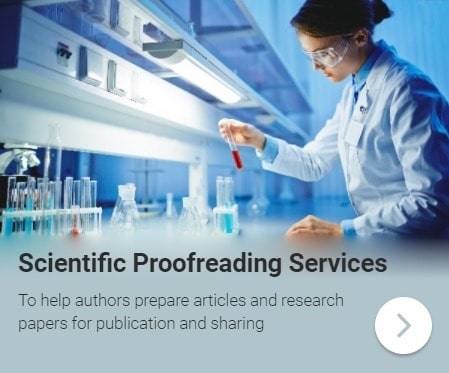
The basic components of a doctoral thesis are outlined and described, as are the elements of complete and accurate scholarly references, and detailed descriptions of writing practices are clarified through the use of numerous examples. PhD Success provides guidance for students familiar with English and the procedures of English universities, but it also acknowledges that many theses in the English language are now written by candidates whose first language is not English, so it carefully explains the scholarly styles, conventions and standards expected of a successful doctoral thesis in the English language.
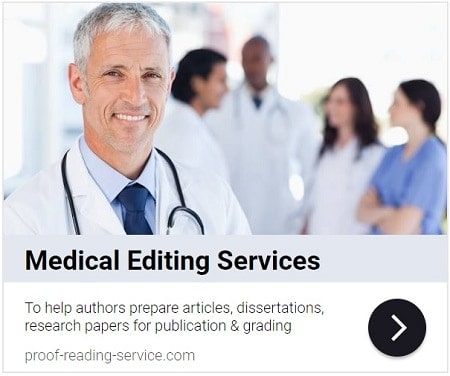
Individual chapters of this book address reflective and critical writing early in the thesis process; working successfully with thesis supervisors and benefiting from commentary and criticism; drafting and revising effective thesis chapters and developing an academic or scientific argument; writing and formatting a thesis in clear and correct scholarly English; citing, quoting and documenting sources thoroughly and accurately; and preparing for and excelling in thesis meetings and examinations.
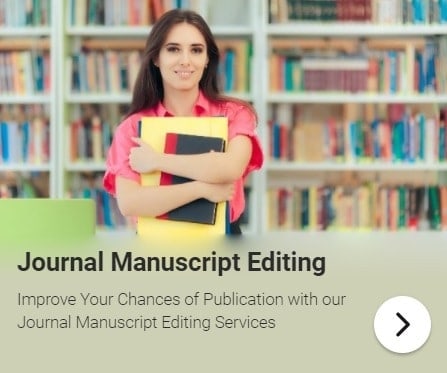
Completing a doctoral thesis successfully requires long and penetrating thought, intellectual rigour and creativity, original research and sound methods (whether established or innovative), precision in recording detail and a wide-ranging thoroughness, as much perseverance and mental toughness as insight and brilliance, and, no matter how many helpful writing guides are consulted, a great deal of hard work over a significant period of time. Writing a thesis can be an enjoyable as well as a challenging experience, however, and even if it is not always so, the personal and professional rewards of achieving such an enormous goal are considerable, as all doctoral candidates no doubt realise, and will last a great deal longer than any problems that may be encountered during the process.
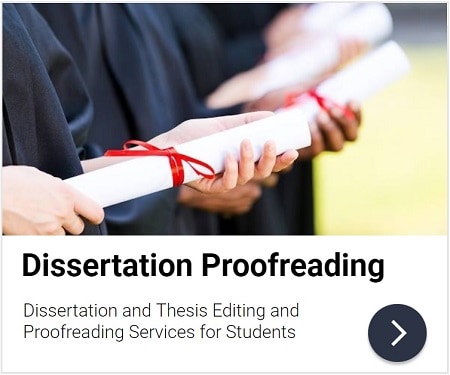
Interested in Proofreading your PhD Thesis? Get in Touch with us
If you are interested in proofreading your PhD thesis or dissertation, please explore our expert dissertation proofreading services.

Rene Tetzner
Rene Tetzner's blog posts dedicated to academic writing. Although the focus is on How To Write a Doctoral Thesis, many other important aspects of research-based writing, editing and publishing are addressed in helpful detail.
Related Posts

PhD Success – How To Write a Doctoral Thesis
October 1, 2021

Table of Contents – PhD Success
October 2, 2021

The Essential – Preliminary Matter
October 3, 2021

The Main Body of the Thesis
October 4, 2021




IMAGES
VIDEO
COMMENTS
Powerful Verbs for Weaving Ideas in Essays The following verbs are helpful as a means of showing how an example or quote in literature Supports an idea or interpretation. Example + Verb + Explanation or Significance (CD) (CM) You may use the above in a sentence as a general formula that may need modified to fit each situation. verb
Definition: to happen at the same time as something else, or be similar or equal to something else. Example: Although the study parallels the procedures of a 2010 study, it has very different findings. Converse International School of Languages offers an English for Academic Purposes course for students interested in improving their academic ...
Active Verbs in Academic Writing While academic writing is often considered dry and lifeless, this doesn't necessarily need to be the case. Just as a story benefits from engaging, dynamic verbs that keep the plot moving, academic writers can also utilize active verbs to help animate their ideas, analysis, connections, and critiques.
confirm, compliment, corroborate, substantiate, support, uphold, validate, verify. To show approximation. approximate, estimate, resemble, predict. *Note: The verbs listed under each category are NOT synonyms and are different based on context. Please ensure that the selected verb conveys your intended meaning.
The verbs you select for your writing should represent a specific action. This means you should avoid generic verbs to keep your writing interesting and sharp. Your goal is to keep teacher or audience interested. Try to avoid these less exciting verbs: See. Is/was. Looked. Did. Go/went.
There are three main verb tenses: past , present , and future. In English, each of these tenses can take four main aspects: simple , perfect , continuous (also known as progressive ), and perfect continuous. The perfect aspect is formed using the verb to have, while the continuous aspect is formed using the verb to be.
Examples of Power Verbs. The following are examples of power verbs that are useful in academic writing, both for supporting an argument and for allowing you to vary the language you use. Power Verbs for Analysis: appraise, define, diagnose, examine, explore, identify, interpret, investigate, observe.
Verb Tenses in Academic Writing. By Michael W, Marek. Wayne State College. Wayne, Nebraska, USA. Mimarek1@wsc. edu. Present Ten se: • General principles not attributed to a specific previous ...
Active Verbs for Discussing Ideas. This handout is available for download in PDF format.. Active verbs are important components of any academic writing! Just as in other forms of writing, they work as engines, driving the action of your sentences in many potentially vivid, clear, and colorful ways.
The first one I published was the Thesis Whisperer Verb Cheat Sheet (PDF). One of the major break throughs I had in my own academic writing was the realisation that verbs are judgy ... Different disciplines have different conventions around verbs - science types tend to use many more neutral verbs for example.
Step 2: Write your initial answer. After some initial research, you can formulate a tentative answer to this question. At this stage it can be simple, and it should guide the research process and writing process. The internet has had more of a positive than a negative effect on education.
Powerful Verbs for Weaving Ideas in Essays The following verbs are helpful as a means of showing how an example or quote in literature Supports an idea or interpretation. Example + Verb + Explanation or Significance (CD) (CM) You may use the above in a sentence as a general formula that may need modified to fit each situation. verb
The most common linking verb is the "be" verb (am, is, are, was, were, etc.), which often describes a state of being. While active verbs demonstrate direct activity or motion, linking and "be" verbs serve as bridges, revealing relations or states rather than actions. While linking verbs are necessary to states facts or show connections between ...
Nominalizations are nouns that capture the concept expressed in a verb or the existence of an action; many (but not all) nominalizations have common endings like -ion, -ment, and -ence:. Recent years have seen a diminishment in the adherence of certain states to the terms of the International Convention on Bagpipe Emissions Reduction. "Diminishment" is the noun form of the verb "diminish ...
Janice L. Hewitt, Ph.D. Choose active, precise verbs to invigorate your scientific or engineering professional papers, thesis, and reports. Frequently those choices will help you avoid unnecessary passive voice and excessive use of "is," "are," "was," "were," "I," or "we.". "This work generalizes Smith's earlier ...
Most Common Verb Tenses in Academic Writing. According to corpus research, in academic writing, the three tenses used the most often are the simple present, the simple past, and the present perfect (Biber et al., 1999; Caplan, 2012). The next most common tense for capstone writers is the future; the doctoral study/dissertation proposal at ...
Wordvice provides high-quality English proofreading and editing services.We have helped thousands of researchers, students, writers, and businesses maximize the impact of their writing. Here are 100+ active verbs to make your research writing more engaging. Includes additional tops to improve word and phrase choices.
Writing About Your Research: Verb Tense The following guidelines may help you figure out when to use past and present tense. USE PAST TENSE . . . To describe your methodology and report your results. At the time you write your report, thesis, dissertation or article, you have completed your study, so should use past tense in your methodology
18. The answer to this question varies across disciplines. Your dissertation presumably falls within some academic discipline. Look at other papers in the same discipline, and see what tenses they use. For example, unlike your suggestion, in math papers the abstract is usually present tense.
Recognizing action words or verbs used in your assignment prompts will help you broaden your vocabulary, identify specific directives, and organize your ideas accordingly, which will help you write more confidently. Here are some common action words: Analyze. Apply. Argue.
5.4.6 Adjectives, Adverbs and Split Infinitives. Adjectives and adverbs are often overused when authors are attempting to be precise, with long strings of adjectives particularly common in some theses, so do check for this while proofreading your draft and pay special attention to instances in which you may have used a large number of adjectival nouns.
This thesis statement is not debatable. First, the word pollution implies that something is bad or negative in some way. Furthermore, all studies agree that pollution is a problem; they simply disagree on the impact it will have or the scope of the problem. No one could reasonably argue that pollution is unambiguously good.